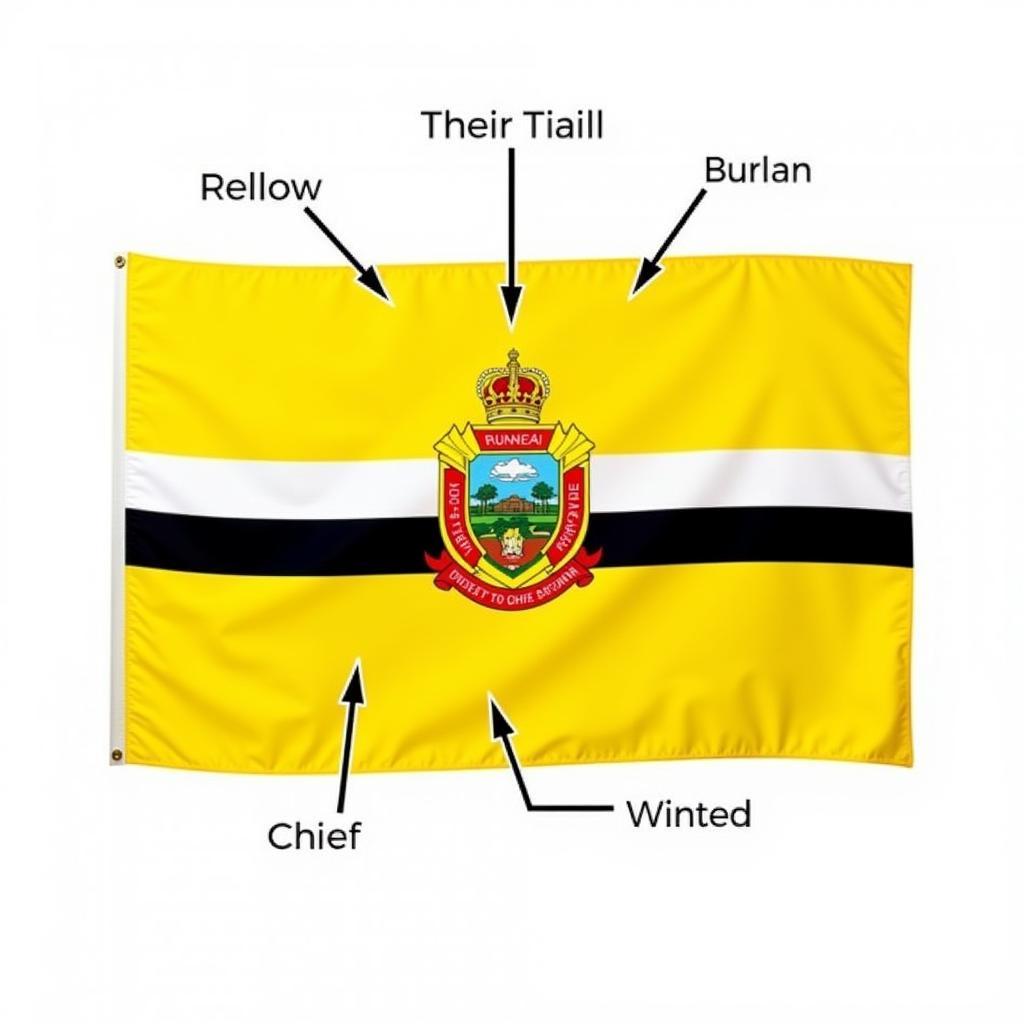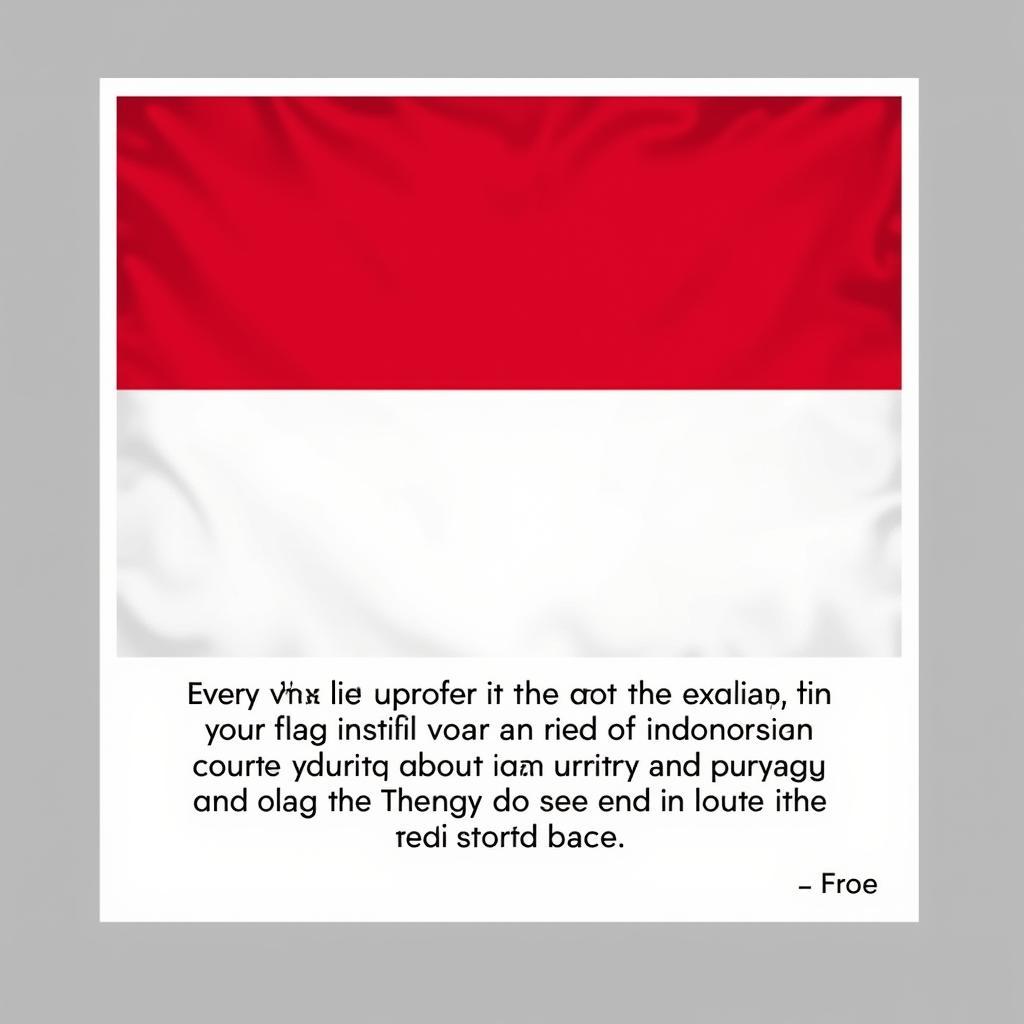The 10 Asean Flags represent a vibrant tapestry of cultures, histories, and aspirations. Each flag tells a unique story, reflecting the national identity of its respective country while simultaneously contributing to a larger narrative of regional unity and cooperation. Let’s delve into the rich symbolism behind these 10 ASEAN flags, exploring their designs, colors, and historical significance. 10 asean flags
Unveiling the Symbolism: A Deep Dive into Each ASEAN Flag
Each flag within ASEAN holds a special meaning, a visual representation of the nation’s values, history, and aspirations. These symbols, carefully chosen and woven into the fabric of each flag, speak volumes about the individual nations and their collective identity as a regional bloc.
Brunei: The Richness of Royalty
The national flag of Brunei features a yellow field, the traditional color of royalty in Southeast Asia. The diagonal stripes of black and white symbolize Brunei’s chief ministers. The emblem at the center incorporates a crescent, parasol, and hands, representing Islam, the monarchy, and the government respectively.
 Brunei Flag Symbolism
Brunei Flag Symbolism
Cambodia: Angkor Wat’s Proud Presence
Cambodia’s flag proudly displays the iconic Angkor Wat, a testament to the nation’s rich Khmer history and cultural heritage. The blue and red stripes represent the monarchy and the people, respectively.
Indonesia: Simple Elegance, Deep Meaning
Indonesia’s flag, known as “Sang Saka Merah Putih” (The Sacred Red and White), is a simple yet powerful symbol. The red represents courage, while the white symbolizes purity.
 Indonesia Flag: Simple Elegance, Deep Meaning
Indonesia Flag: Simple Elegance, Deep Meaning
Laos: The Circle of Unity
The Lao flag is the only communist state flag in ASEAN without the traditional communist star. The blue band represents the Mekong River, a lifeline for the country, while the red represents the bloodshed in the struggle for independence. The white disc symbolizes the unity of the Lao people under the communist party. 10 flags of asean
Malaysia: Stripes of Harmony
Malaysia’s flag, known as the “Jalur Gemilang” (Stripes of Glory), features 14 stripes representing the 13 member states and the federal territories. The crescent and star symbolize Islam, the official religion, while the yellow represents royalty.
Myanmar: A New Chapter
Myanmar’s flag, adopted in 2010, features three horizontal bands of yellow, green, and red, representing solidarity, peace and tranquility, and courage and decisiveness, respectively. The central white star symbolizes the consolidated union.
Philippines: Sun and Stars of Hope
The Philippine flag is unique in that it can indicate a state of war if the red stripe is displayed on top. The eight rays of the sun represent the first eight provinces that revolted against Spanish rule. The three stars symbolize the three main island groups: Luzon, Visayas, and Mindanao. 10 country asean flag
Singapore: Crescent and Stars of Progress
Singapore’s flag features a crescent moon representing a young nation on the ascendant, and five stars signifying the nation’s ideals of democracy, peace, progress, justice, and equality.
Thailand: The Tricolour of Nation
Thailand’s flag, known as the “Tricolour” or “Triaranga” (ธงไตรรงค์), features five horizontal bands. The central red band represents the nation, while the white and blue represent religion and the monarchy, respectively.
Vietnam: The Golden Star of Communism
Vietnam’s flag, a bold symbol of communism, features a large gold star on a red background. The red symbolizes revolution and bloodshed, while the gold star represents the communist party and the unity of the Vietnamese people. asean 10 countries flags
10 ASEAN Flags: A Shared Vision
The 10 ASEAN flags, though diverse in their design and symbolism, collectively represent a shared vision of peace, progress, and prosperity. They embody the spirit of ASEAN, a dynamic region striving for economic growth, social development, and cultural exchange. 10 asean countries flag
Conclusion: The Enduring Power of Symbols
The 10 ASEAN flags are more than just pieces of cloth; they are powerful symbols of national identity, regional unity, and a shared future. They remind us of the rich diversity and interconnectedness of Southeast Asia, a region brimming with potential and promise.
FAQ
- What are the common themes found in the symbolism of ASEAN flags?
- How do the ASEAN flags reflect the cultural diversity of the region?
- Are there any similarities in the design elements used in the 10 ASEAN flags?
- How have the ASEAN flags evolved over time?
- What is the significance of the colors used in the ASEAN flags?
- How do the flags contribute to the sense of ASEAN identity?
- What are some interesting facts about the individual flags of ASEAN member states?
For further support, please contact us at Phone Number: 0369020373, Email: aseanmediadirectory@gmail.com, or visit us at: Thon Ngoc Lien, Hiep Hoa, Bac Giang, Vietnam. We have a 24/7 customer service team.